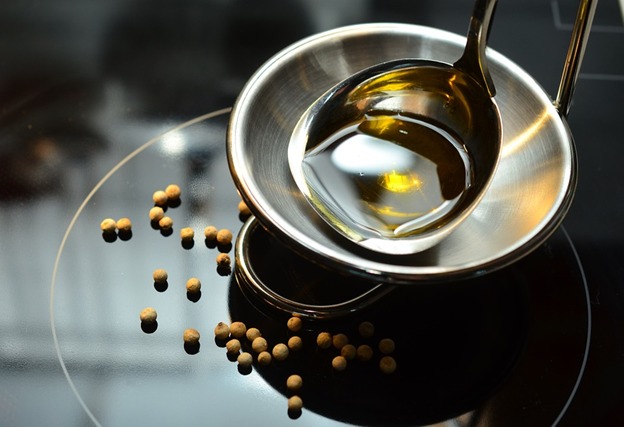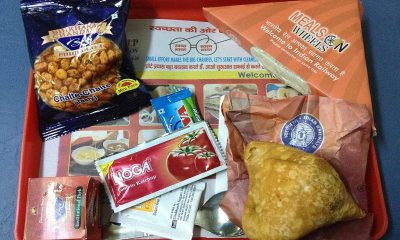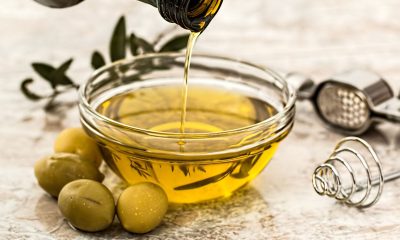Health
Why It Is Important to Include Oils and Fats In Your Diet?

Cooking oils are an essential part of Indian foods and you cannot imagine your day without eating at least one or the other food item consisting of oil and fats. (Oils and fats are most of the times commonly referred to mean the same things.)
But does your body need fats?
Yes, it does.
Fats have a bad reputation when it comes to discussing its nutritional content. They are important to carry out many cognitive functions, production of hormones and the distribution of vitamins throughout our body.
The key thing while dealing with fats is that a balance needs to be maintained. Too much or too less fat content in our body may cause various health-related issues.
But…
Why do we need oils and fats in our diet?
Dietary Fats and oils are necessary to supply energy to our body, promote cell growth and form the building blocks for brains, cells and tissues. They are vital for hormone production and vitamin absorption. They protect various organs and helps in keeping our body warm. Oils are important to keep our skin healthy and consumption of oil impacts the cognitive and physical functions of our body.
But not all fats have these health benefits. There are different dietary groups of fats and each of these groups can affect your health differently.

What are the different groups of dietary fats?
There are four types of dietary fats
- Saturated fat
- Polyunsaturated fat
- Monounsaturated fat
- Trans fat
Let’s understand each type of dietary fats
- Saturated Fats
In simple terms, saturated fats are bad fats found in meat and many milk products. They increase the risk of coronary heart diseases. A lot of food items we consume contain a high amount of saturated fats – like bakery products, cake, desserts and fast food items.
Saturated fats are also found in daily products like dairy products & meat. Some cooking oils like coconut oil and palm oil are also heavy in saturation content. But unlike fast foods, these items contain other nutrients in high quantity and should be included in our daily diet.
You should know your recommended saturated fat intake to avoid causing any ill-effects.
2. Polyunsaturated Fats
It is a type of dietary fat, which is considered as healthy along with monosaturated fats. It is found in plant and foods.
Consumption of polyunsaturated fats in the right amount can lower the percentage of LDL (low-density lipoprotein) cholesterol (bad cholesterol) in your blood. Having low LDL cholesterol can reduce your risk of heart diseases.
Polyunsaturated fats include two important fats omega-3 and omega-6. Both are essential for the functioning of the brain and body cell formation. These two fats are not produced in our body and must be added externally in our diet. The best way to add these oils to your diet is to through cooking oil like Sunflower oil, flax oil and soyabean oil which are a good source of omega -3 and omega-6 fats.
3. Monounsaturated Fats
Monounsaturated fats are unsaturated fats found in most food products. Food that is high in unsaturated fats is liquid at room temperature such as olive oil. Whereas oils with high saturated fats are usually solid or wax-like at room temperatures such as butter or coconut oil.
Similar to polyunsaturated fats, monounsaturated fats are beneficial for our health. They are known to aid weight loss, reduce risk factors for heart diseases, may improve your insulin sensitivity and reduce inflammation.
It is advisable to add these fats to your daily consumption. Food which contains a high amount of monounsaturated fats includes sunflower oil, eggs, cashews, peanuts etc.
4. Trans fats
Trans fats or trans fatty acids are a type of fats found in almost all food items in at least a small quantity. Similar to saturated fats, even trans fats are considered unhealthy. They increase the level of LDL cholesterol in our blood.
Transfat is present in almost all our daily products like vegetable oil, milk and cheese. Many bakery products and processed foods contain trans-fat as a result of a process called ‘partial hydrogenation’.
Fats and Blood Cholesterol
Cholesterol is a waxy substance found in blood and is essential for every cell in the body. It helps in the production of two important hormones – estrogen and testosterone. The two major cholesterol carriers are LDL Cholesterol (low-density lipoprotein) and HDL cholesterol (high-density lipoprotein).
Unsaturated and trans fats increase the amount of LDL cholesterol in our body and it gets deposited as plaque in the arteries of your heart causing various cardiovascular diseases.
Polyunsaturated and monounsaturated fatty acids promote the HDL cholesterol which functions as the carrier of nutrients to the various cells in the body and to filter out the waste from your blood.

Fat-containing Food products
Saturated Fats – Examples of saturated fats are poultry, fish, nuts, beans and soy products like tofu.
Polyunsaturated Fats – Sources of polyunsaturated fats include walnuts, sunflower seeds, corn oil, soybean oil, flax seeds.
Monounsaturated Fats – Foods containing high monounsaturated fats include olive oil, almonds, butter, egg, cream cheese, and avocado.
Summary
It is undeniable that fats are important nutrients in our body. The quality of food we consume decides the type of fat we digest in our body. Including healthy fats boosts your metabolism, insulin activity, maintains weight and cognitive functions. Replacing saturated fats with unsaturated fats by aiming to eat a diet comprising vegetable oils, fruits and whole grains. High-processed foods, beverages, sweets and some healthful products




















